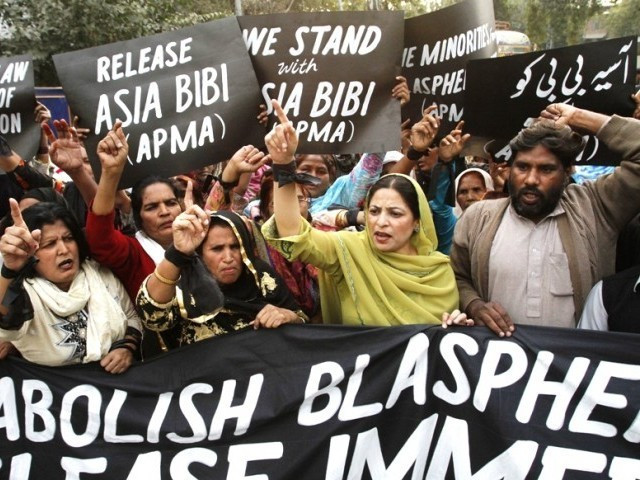Salman Taseer paid his price for speaking against the heinous blasphemy law with 27 bullets in his body and blood splattered all across Kohsar Market, with his words drenched in blood,
“My resolve is so strong that I do not fear the flames from without, I fear only the radiance of the flowers, that it might burn my garden down.”
Even the drops of his blood couldn’t assuage the flames of the fire that burns so brightly in the hearts of the zealots in Pakistan.
Five years down the line, there is hope. Hope that justice might prevail, hope that Aasia Bibi will be allowed to see the outside of the prison walls and once again be bold and free like she was before the day she was sentenced to death. This ray of hope has manifested itself in the verdict of the Supreme Court to adjourn Aasia Bibi’s execution and allow her petition to be heard.
The Supreme Court has taken a decision that ought to be lauded, for in the country where a Christian woman’s testimony holds no significance over a Muslim one, where our rationale goes south in the face of religious beliefs, this is a decision that reflects upon the ideas left behind by Salman Taseer, which continues to gain a strong foothold despite the jingoism that is on an evident rise in Pakistan.
You can kill a man, but you can’t kill an idea.
According to frequent interviews that her husband has given in the hope of rallying enough support to demand justice for his wife, Aasia Bibi had countered some half-veiled and full-blown insults of how a non-Muslim was ‘unfit’ to touch their Holy Quran.
Since when did Islam create a division along the characterisation of the ‘touchables’ and the ‘untouchables’?
Or maybe it’s just the effect of self-proclaimed evangelists that are responsible for all the lives and families destroyed by virtue of the hate speech propagated in Friday sermons to their die-hard aficionados.
The question in principle isn’t and shouldn’t be about her death sentence at all, for the woman’s innocence speaks for itself. But the real question is about the xenophobic laws that have empowered the extremists to the extent that false accusations fuelled by personal feuds are enough reason to burn someone to ashes, or report them to the police, both of which bring about similar outcomes, the pilfered right to justice and life.
Why are the beliefs of one religion more important than the other? Why is a man superior for being born in the house of a Muslim over the other, who through a simple accident of fate, is born into a Christian household?
The ray of hope that now rests in the palms of the Supreme Court judges is Aasia Bibi’s only chance for justice. One can only hope that justice will prevail despite all the pressures and attempts of the extremists to overshadow our society with a canopy of xenophobic hate and extremism.
But will it?
Only time will tell.



COMMENTS
Comments are moderated and generally will be posted if they are on-topic and not abusive.
For more information, please see our Comments FAQ